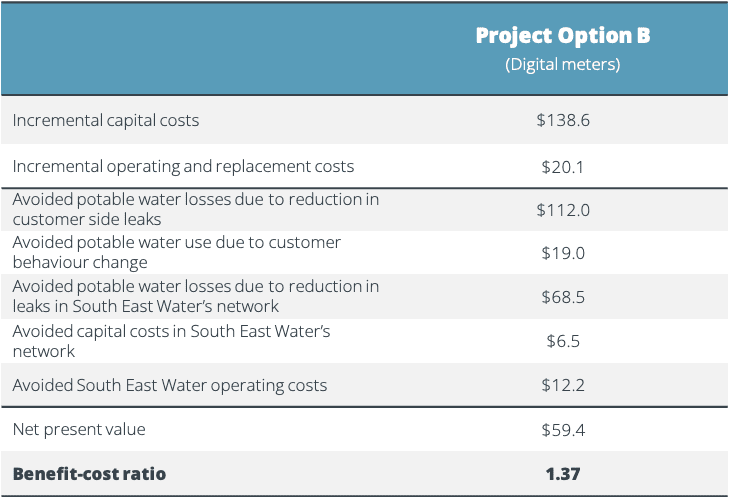What was the challenge?
Water security is a growing challenge for many governments due to climate change and population growth. Concurrently, water companies, such as South East Water, have begun prioritising digital transformation as a means of harnessing the power of data.
One avenue for transformation has been the installation of digital meters to collect real-time data on water supply and usage, which helps to identify leaks and reduce water waste, addressing the issues of water security. Additionally, informing customers of real-time usage, especially for information about unknown leaks, can greatly improve customer satisfaction.
However, digital meters typically have relatively high upfront capital cost (~2-3 times more costly than mechanical meters). It is therefore vital to have a sound economic framework that transparently identifies and quantifies the value of the benefits to utilities, customers and the broader community over time. In order to be able to justify the additional upfront costs incurred by utilities, and ultimately paid for by customers, associated with rolling out digital meters.
Frontier Economics was engaged to conduct a business case and cost-benefit analysis (CBA) for South East Water's digital metering program.




